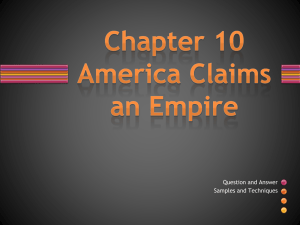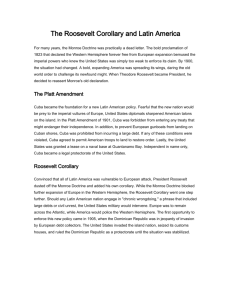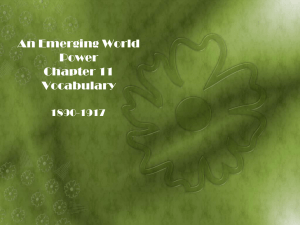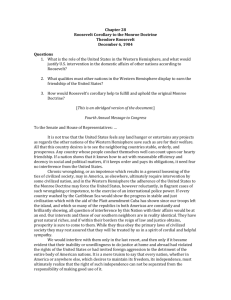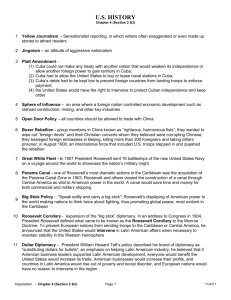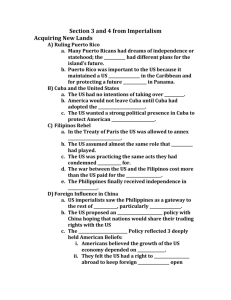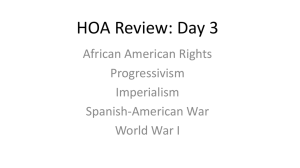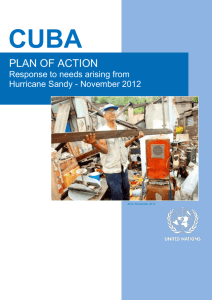Platt Amendment WKSHT - Manhasset Public Schools
advertisement
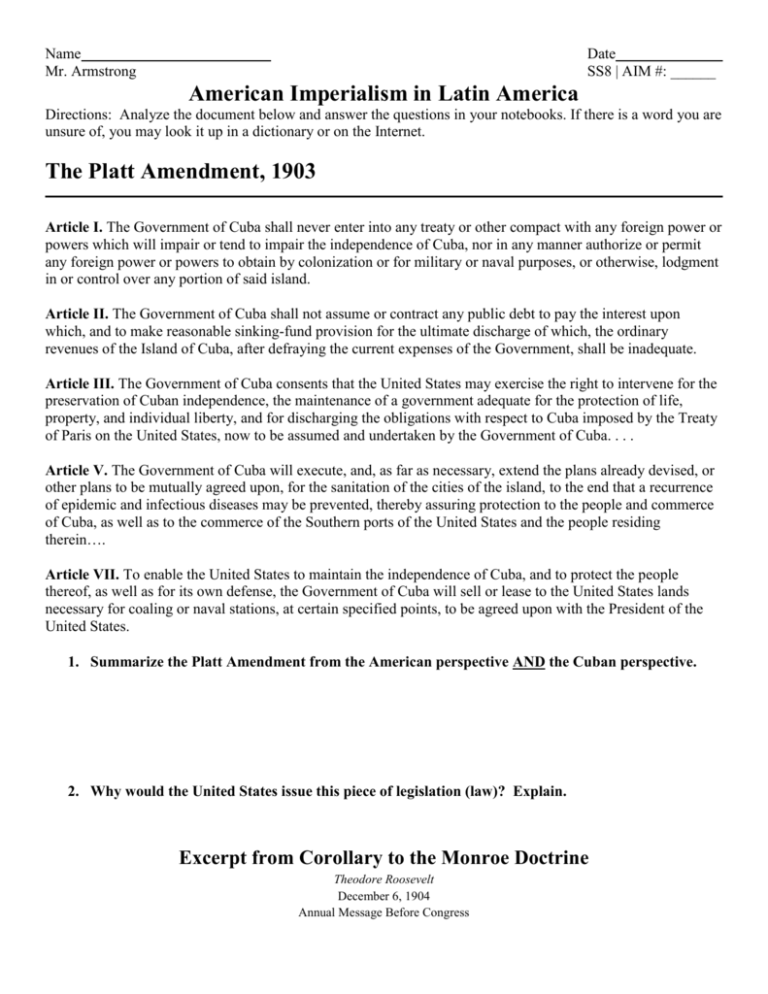
Name Mr. Armstrong Date SS8 | AIM #: ______ American Imperialism in Latin America Directions: Analyze the document below and answer the questions in your notebooks. If there is a word you are unsure of, you may look it up in a dictionary or on the Internet. The Platt Amendment, 1903 Article I. The Government of Cuba shall never enter into any treaty or other compact with any foreign power or powers which will impair or tend to impair the independence of Cuba, nor in any manner authorize or permit any foreign power or powers to obtain by colonization or for military or naval purposes, or otherwise, lodgment in or control over any portion of said island. Article II. The Government of Cuba shall not assume or contract any public debt to pay the interest upon which, and to make reasonable sinking-fund provision for the ultimate discharge of which, the ordinary revenues of the Island of Cuba, after defraying the current expenses of the Government, shall be inadequate. Article III. The Government of Cuba consents that the United States may exercise the right to intervene for the preservation of Cuban independence, the maintenance of a government adequate for the protection of life, property, and individual liberty, and for discharging the obligations with respect to Cuba imposed by the Treaty of Paris on the United States, now to be assumed and undertaken by the Government of Cuba. . . . Article V. The Government of Cuba will execute, and, as far as necessary, extend the plans already devised, or other plans to be mutually agreed upon, for the sanitation of the cities of the island, to the end that a recurrence of epidemic and infectious diseases may be prevented, thereby assuring protection to the people and commerce of Cuba, as well as to the commerce of the Southern ports of the United States and the people residing therein…. Article VII. To enable the United States to maintain the independence of Cuba, and to protect the people thereof, as well as for its own defense, the Government of Cuba will sell or lease to the United States lands necessary for coaling or naval stations, at certain specified points, to be agreed upon with the President of the United States. 1. Summarize the Platt Amendment from the American perspective AND the Cuban perspective. 2. Why would the United States issue this piece of legislation (law)? Explain. Excerpt from Corollary to the Monroe Doctrine Theodore Roosevelt December 6, 1904 Annual Message Before Congress …“It is not true that the United States feels any land hunger or entertains any projects as regards the other nations of the Western Hemisphere save such as are for their welfare. All that this country desires is to see the neighboring countries stable, orderly, and prosperous. Any country whose people conduct themselves well can count upon our hearty friendship. If a nation shows that it knows how to act with reasonable efficiency and decency in social and political matters, if it keeps order and pays its obligations, it need fear no interference from the United States. Chronic wrongdoing, or an impotence which results in a general loosening of the ties of civilized society, may in America, as elsewhere, ultimately require intervention by some civilized nation, and in the Western Hemisphere the adherence of the United States to the Monroe Doctrine may force the United States, however reluctantly, in flagrant cases of such wrongdoing or impotence, to the exercise of an international police power.” 1. What was the Monroe Doctrine? (Please look it up if you are unsure) What did it state? 2. According to Roosevelt’s Corollary, what does the United States want to see from its neighbors? 3. List the reasons Roosevelt identifies as causes for U.S. intervention. 4. How does Roosevelt justify his statement based on previous historical events? 5. Why would Roosevelt issue this statement? And do you agree or disagree with it? Explain. 6. Compare and contrast the Platt Amendment to the Roosevelt Corollary. What similarities do they share? How are they different? Justify your answer with evidence.
